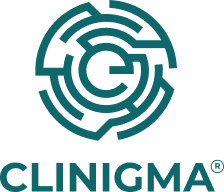Literature Reviews
Our scientific team helps you identify what matters most to patients. We conduct rigorous, regulatory-compliant targeted and systematic literature reviews for conceptual disease model development and patient-centered clinical outcome assessment. Work with our scientific team to develop a coherent COA strategy based on current literature and other strategies to minimize regulatory risk.
Patient-focused literature reviews
The shift from disease-centered to patient-centered research requires fundamentally different approaches to literature synthesis and conceptual modeling—ones that systematically incorporate patient voices, preferences, and lived experiences from the earliest stages of evidence generation. CLINIGMA® works with you to conduct targeted or systematic reviews in accordance with PRISMA guidelines, with a focus on rare diseases. By systematically synthesizing patient evidence and COA strategies, CLINIGMA®'s research team creates robust, regulatory-compliant frameworks that truly reflect patient priorities and experiences while supporting successful PFDD.
Tailored research
CLINIGMA® conducts literature reviews tailored to your objectives, timelines, evidence gaps, and regulatory requirements, and in accordance with ISPOR, FDA, and EMA guidance. We work with you to gather and apply the research evidence, e.g., using insights to create robust conceptual models, designing patient or clinician interview studies, or presenting evidence to meet evolving regulatory standards, as required.
Patient voice integration
We specialize in qualitative synthesis to capture authentic patient perspectives and lived experiences from the published literature. CLINIGMA® integrates these findings into primary data collection (e.g., in-trial interviews)—for truly patient-centered outcome strategies.
Comprehensive gap analysis
Our systematic gap analysis identifies discrepancies between existing clinical outcome assessments and patient-identified priorities. We provide clear recommendations for COA modification, development, or selection based on evidence-informed assessment of measurement adequacy.
Multi-stakeholder evidence synthesis
CLINIGMA® can bridge patient research with clinician perspectives through integrated literature synthesis—to combine both patient experience and clinical insights. This dual approach ensures conceptual models reflect real-world treatment contexts while maintaining patient-centricity.
COA strategy optimization
We provide COA selection guidance, modification, or de novo development based on comprehensive literature assessment and patient priorities. We deliver literature-informed validation strategies, providing clear guidance for demonstrating meaningful change and patient relevance in your target population.
Informed qualitative research
We seamlessly integrate targeted literature review findings and conceptual models into patient or caregiver interview . We combine published patient perspectives with original research, optimizing the value of both secondary and primary data—for robust regulatory submissions that prioritize patient perspectives.

Excellence in patient-centered research
Partner with CLINIGMA® for targeted or systematic literature reviews and conceptual model development—aligned to provide actionable insights.
For specialized support in conducting patient-centered literature reviews, developing COA-informed conceptual models, or navigating regulatory requirements for patient-focused COA endpoints—our methodological experts provide comprehensive guidance aligned with current FDA, EMA, and ISPOR guidance.
Deep and meaningful understandings of patient experiences.
Enhanced regulatory compliance.
More effective drug development processes.
AI-assisted literature reviews: We can combine AI efficiencies with human expertise to accelerate literature synthesis to enhance quality, rigor, integrity, and transparency.
Read moreMeet our scientifc team

For tailored literature reviews
Work with CLINIGMA® for systematic and targeted literature reviews, conceptual model development, and excellence in qualitative research for PFDD.


2.png)








